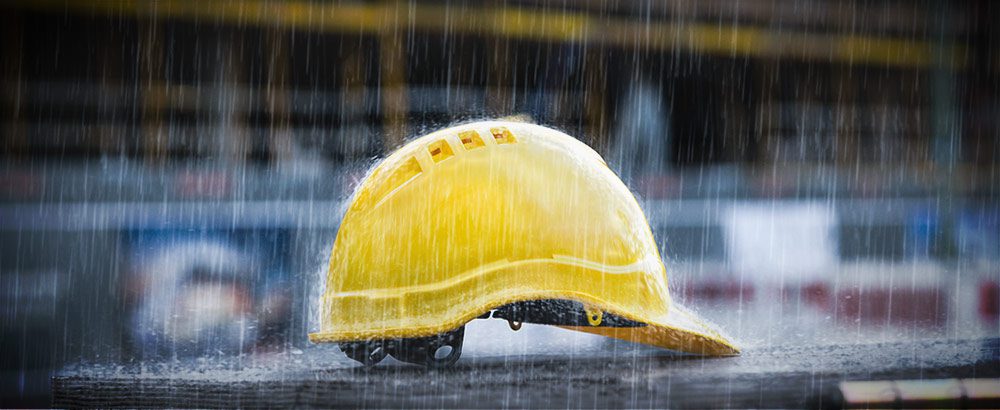The new Tommy Bahama magazine came in the mail, and the front cover in 3” bold letters says “YOUR SUMMER STARTS HERE.” Our summer in Florida usually starts with rain, rain, rain and preparing for hurricane season while those up north are finally getting sunny days. On a positive note, we have less traffic with school out, and the snowbirds are getting sunshine elsewhere. For construction, we have already seen torrential rain causing projects to be shut down, damage to job sites and unexpected delays and costs from the weather. The challenge is knowing how to plan for and recover losses due to mother nature.
The first step is to have a construction attorney that works with you to ensure you have the proper coverage in your contracts and with any liability coverage you carry. A knowledgeable owner or owner’s representative will challenge you to justify the claim. If you have to go to court you will be asked to cover four specific points:
- The delay is within the terms of the contract
- The construction activity that is delayed has a direct effect on the project end date
- The weather was in excess of the “normal weather.”
- Clear documentation on what specific activities were delayed due to weather occurrence
It is essential in all states to have a weather clause as we saw with the recent unexpected tornados in New England and the other weather phenomenon that seem to be happening more and more these days. In Florida it is not if, but when will have a hurricane. A delay clause in your contract will typically spell out whether a contractor gets strictly a time extension called a non-compensable delay or whether they will get monetary damages called compensable delay or both.
Whose responsibility is having this covered on a project?
The contractual side is signed before work begins. The contractual side is the responsibility of the person at your company doing contract preparation and negotiations with the owner and hopefully with the help of a knowledgeable construction attorney. Once the project is underway, it is the Senior person on the project that is responsible to make sure the team is documenting and photographing in accordance with the contract. The project team needs to be prepared if a conversation needs to take place with the owner, back-up can be provided demonstrating it should be a conversation, not litigation.
Often the Senior Project Manager or Managing Executive for the project is not on site full-time and may even travel to projects in multiple regions or states. Superintendents trained on procedure and also trained to understand the importance of the necessary real-time photos and documentation when a weather event is occurring or has occurred will give you the valuable documentation you need. You, of course, do not want anyone on the site once weather conditions have been deemed unsafe.
Most construction companies have the majority of their staff on salary and need to carry the labor burden whether actively working on a job site or not. Also, dependent on how your sub-contracts are written there may be costs associated even when work is not being put in place to expedite the schedule. Other costs associated can include clean-up costs ranging from dewatering, debris removal to equipment tear down and set up etc. Waiting to recoup this money affects a company’s cash-flow. If costs are not recovered, it can take a profitably bid project into the red quickly.
Are you and your team trained on how to handle weather delays and ready to deal with them? Summer starts here. Schedule your training soon so your summer can be a Tommy Bahama one!

